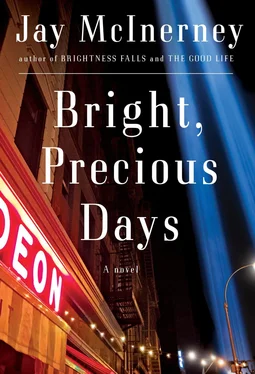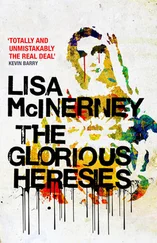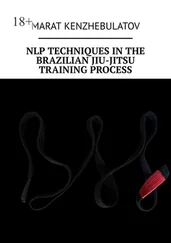“Good night, son.”
—
After returning from the bathroom, she undressed behind the closet door and emerged in full pajamas, a red cotton top and bottom that had never once been removed in the heat of passion, and settled into her side of the bed with her book, Joan Didion’s memoir about her husband’s death — not necessarily a good sign. He could see from the tight set of her mouth that she was not likely to say anything, the silence settling around them like setting concrete. He picked up a manuscript, an addiction memoir he wouldn’t even have glanced at if the agent, whom he respected, hadn’t assured him of its literary quality. He just didn’t think the world needed another one of these, except that they seemed to continue to sell, even after the scandal of A Million Little Pieces, as if there were a bottomless appetite for true-life tales of degradation and redemption. It was by this time formulaic, a genre as unvarying in its stations of the cross as an episode of Law & Order, although there were variables — coke instead of heroin or, in this particular case, meth.
“I might just read a little more,” he said when she clicked off her light.
“That’s fine,” she said.
Fifteen minutes later he knew that she was still awake, could sense her consciousness from across the king-size bed. The tension was palpable; his continued reading was giving her an additional grievance to store up against him. He put down the manuscript and turned out his light, but while he was trying to come up with a conciliatory remark, he heard the rhythmic breathing of Corrine’s sleep.
At one-thirty he went to the bathroom and took an Ambien. He heated a mug of milk in the microwave and stirred in some Ovaltine. Taking it to the couch, he surveyed his kingdom, such as it was — the bookshelves with their signed first editions, the Berenice Abbott portrait of Joyce, the almost abstract Russell Chatham landscape they’d bought from the artist himself on a trip to Montana, the Wiener Werkstätte side table they’d bought at a flea market in Pennsylvania for seventy-five bucks; these were among the few items of worldly value, and they didn’t add up to all that much — certainly not enough to cover the down payment on the loft — but everything here had been gathered by the two of them together over the years and he felt a keen sense of conjugal proprietorship in the family portraits and bric-a-brac, the cracked leather club chair from his father’s den, the Those Calloways poster, the kids’ artwork framed on the walls or attached to the refrigerator with magnets — the backdrop they’d created over many years for the ongoing story of their lives.
He couldn’t believe that after all this time, as hard as he’d worked, he wasn’t sure he could even afford to buy this decrepit loft with its subcode wiring and peeling paint, wavy floors and a single bathroom. Was this too much to ask? He’d known when he chose his profession that it wasn’t terribly lucrative, but he hadn’t anticipated then that someday he’d be fifty, with two school-age children. Nor had he realized that Corrine would abandon her job at Merrill Lynch early on, that she’d be working in the nonprofit sector. He was proud of her, but her paycheck left something to be desired.
He retreated to the bedroom, with the clock ticking on his Ambien; he needed to be lying down with all the lights out when it kicked in, or else he’d lose the moment and be awake all night.
He lay down at a little after two o’clock and woke up exactly five hours later with the jangly headache that inevitably resulted from taking Ambien after a night of drinking…first the house cocktail, then two bottles of Pol Roger, then who knows how many of those sneaky little carafes of sake. Had he actually eaten that disgusting sack of fucking fish sperm? He must ’ve been drunk.
Something else was bothering him, lodged at the back of his mind like a tiny fishhook. It was like that dream song of Berryman’s where Henry wakes up afraid he’s killed someone, but “nobody is ever missing.” What the hell was it? After he’d awakened the kids and turned on the news, the nagging question finally came to him: Why had Washington passed on Kohout’s book?
SPRING WAS COMING TO the Hemel-en-Aarde valley even as the autumn deepened in New York. Just back from the Transvaal, Luke was restless; the vines and the grass were bright green once again, while the fossilized bones of ancient hominids and the animals they’d killed and the stone tools they’d carved continued their ancient slumber. Sometimes a fragment of a jawbone or a knife point would appear in the vineyard, exposed by plowing or erosion. Along with a handful of Civil War bullets and belt buckles from his childhood home in Tennessee — relics of the Battle of Franklin — three Acheulean hand axes graced Luke’s desk: faceted stone lozenges with a pleasing heft in the palm, the oldest and longest-used implements made by human hands, unearthed in the vineyard.
He loved the valley, but he was also tired of it, and at this moment he missed New York, where nothing was ancient and a new crop of stores and bars and restaurants pushed up between the cracks of the sidewalks to flourish for a season or two, before they, in turn, were crowded out by newer ones. Though he’d spent three decades in the city, in recent years he associated it mostly with Corrine; he was nostalgic for interludes they’d never shared, constrained as they had been by the need to hide their affair — picnics in Central Park, shopping sprees on Madison Avenue, leisurely dinners at Italian restaurants recommended by the Times. In fact, he’d hardly ever had the leisure for these urban idylls he imagined now, working sixteen-hour days, shuttling by Town Car from apartment to office, office to airport, bound for Columbus or Little Rock, pausing occasionally to refuel at the Four Seasons or celebrate a deal at ‘21’ or accompany his wife to one of the charity balls that seemed to be her chief recreation, where he diddled his BlackBerry under the table as she flirted with his friends and the husbands of her friends. He cherished certain memories of urban rituals with his daughter, but in his heart he knew he’d been a part-time father at best. His real life had been lived on LCD screens, Manhattan as the backdrop for due-diligence drudgery and occasional heroic digital feats of high finance. Which is why he’d retired from the private equity firm he’d cofounded. Within days, the planes had crashed into the towers, and all his plans had gone sideways.
At the bar in the living room, he poured three fingers of scotch into a tumbler and retreated to his study, where he checked the closing numbers for the financial markets in New York — the Dow and S&P up again, the rand continuing its slide against the dollar — and tomorrow’s weather forecast, sunny, with a high of seventeen degrees centigrade, which he had to convert in his head, non-Fahrenheit degrees still unreal to him after three years in the valley of heaven and earth, though the weather didn’t matter so much now that the grapes were harvested, the new vintage mellowing in the cellar, beyond the reach of the elements, except, perhaps, the tidal pull of the moon. While he was not of the dancing-naked-among-the-vines school of viticulture, his midlife foray into farming had given him a new respect for the rhythms of the spheres and the unseen forces of the natural world, which were as inexorable as the operations of markets. He knew that the wine tasted unsettled in the barrel as the full moon approached, just as he knew that the price of bonds moved inversely to interest rates, and he now felt far more attuned to the cycle of the seasons than in the days when he’d lived in conference rooms and airports.
Читать дальше












